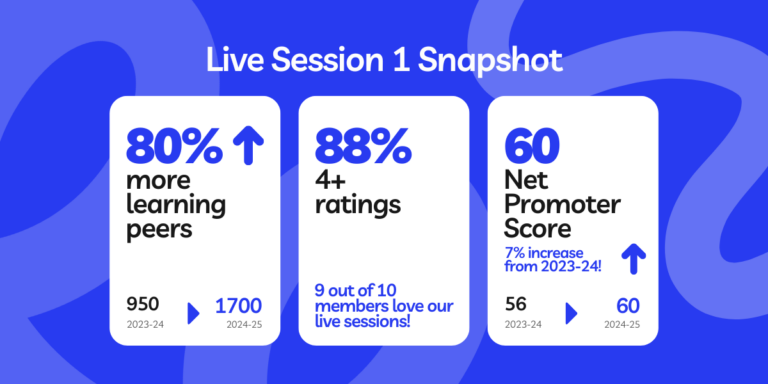By Gregory Macur, Vice Principal at The Canadian International School
Elementary Principals PLC
So far this year, I have had the privilege to take part in the Elementary Principals PLC. Throughout this, we have looked into several key school areas such as leadership structures, observations, feedback, leadership visibility and more. I have had personal development as a leader and have found this to be a highly useful group to bounce ideas off and learn from. This short article will dive into some key aspects of feedback and how this can help you grow.
Senior leader development
Senior leaders grow in their role by being open to feedback from all staff in their schools. Your school is a community of peers, some of whom have decades more experience than you. They come with a deep understanding of school patterns, the issues that arise, and the solutions that people have tried before you. Others are in their first year as new teachers, fresh with ideas from recent research and knowledge gained from a teacher training program. Both groups are essential for your development.
Encourage feedback, listen and act!
Encouraging feedback may not always be enough. I have found that actively seeking it out can be more effective. Encouraging feedback tends to work well with the more extroverted staff, while actively seeking it out works better with the more introverted staff. How can you do this? During corridor walks, drop into classrooms and simply ask teachers, “How are you? Is there anything I can help with? Is there anything I can do to make your job better?” This approach can reveal a wealth of improvement opportunities for your school and sometimes even provide insights from the more confident staff about your own performance.
Once you have engaged in the important act of listening, it is crucial to take action based on the feedback received. This not only helps you grow, but also enhances your team’s trust in you. This is something that we have discussed many times in our PLC.
Anonymous feedback
In my first year as a senior leader, I had a conversation with a Grade 1 teacher over lunch. It turned out that he had prior experience training CEOs and Board members in large companies in the field of organizational development. Curious to learn from his expertise, I asked him for one piece of feedback that could help me improve as a leader. He shared with me the importance of having a space within organizations where feedback can be given anonymously. His reasoning was that, regardless of how approachable you may be, there will always be individuals who feel uncomfortable providing feedback face to face.
Taking his feedback to heart, I have since implemented changes that have greatly contributed to my reflection, growth, and development as a leader. One such change is including a link to an anonymous feedback form in the weekly updates. I make it a point to read the feedback on a weekly basis and take action wherever possible based on the insights provided.
A few confident and honest team members
It is important to have a few individuals whom you can directly approach for feedback on a process, as they will provide you with honest insights. You will find individuals like this within a PLC, and that is great! But you can also find them in your school. Ideally, you should have one person from senior leadership, one from middle leadership, and at least one teacher. These individuals should be trusted sources who you know will always tell you the truth, regardless of how difficult it may be to hear. In my experience, these people have been an immensely valuable asset. When they deliver a message that is hard to hear, it is crucial to take it on board and express gratitude for their feedback.
The most effective feedback regarding change, leadership, policies, and developments often comes from those on the “front line” – the individuals directly involved in the day-to-day operations. When reflecting on your own development, remember to consider the perspectives of these key individuals.















